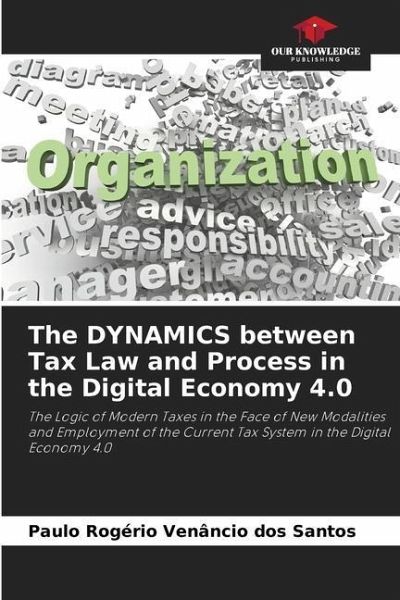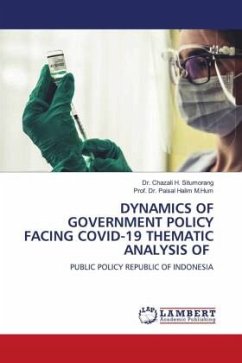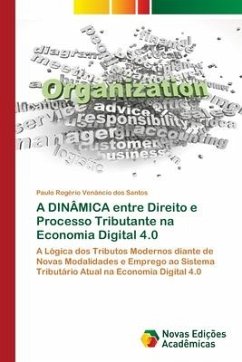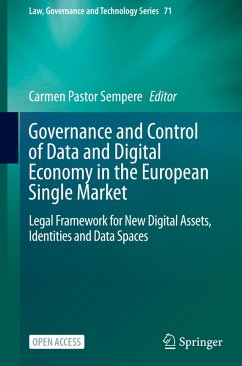
The DYNAMICS between Tax Law and Process in the Digital Economy 4.0
The Logic of Modern Taxes in the Face of New Modalities and Employment of the Current Tax System in the Digital Economy 4.0
Versandkostenfrei!
Versandfertig in 6-10 Tagen
29,99 €
inkl. MwSt.

PAYBACK Punkte
15 °P sammeln!
This work aims to evaluate the dynamics of Tax Law in response to new perspectives in its taxing process in order to meet the internalities of its collection system. The question is what to tax and how to tax these elements in the New Economy. Such as taxable event, tax base, rates, etc...There is a change in the structures of how to tax in face of the new aggregate models of the new economy identified as Economy 4.0 or Digital Economy.A clear synthesis faced today by the taxing sphere of several tax authorities is in the chain dynamics produced by new disruptive technology elements, which has...
This work aims to evaluate the dynamics of Tax Law in response to new perspectives in its taxing process in order to meet the internalities of its collection system. The question is what to tax and how to tax these elements in the New Economy. Such as taxable event, tax base, rates, etc...There is a change in the structures of how to tax in face of the new aggregate models of the new economy identified as Economy 4.0 or Digital Economy.A clear synthesis faced today by the taxing sphere of several tax authorities is in the chain dynamics produced by new disruptive technology elements, which has become a very strong challenge to the taxation and collection system.What can be observed, in summary, is a new opening for tax engineering, within new economic, financial, and commercial aspects, to operationalize in its fiscal dynamism, the contributions so that the best assertions can be made in its tax collection gradient.A better tax system is expected, qualifying them within their characteristics in modern taxes, in comparison to their reformulation by the competent political entities.












